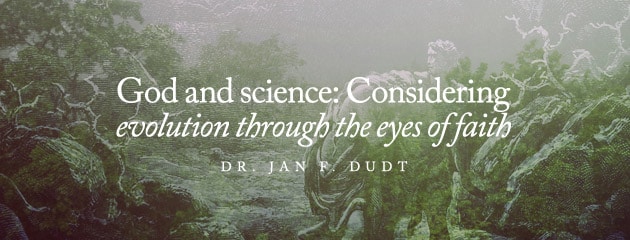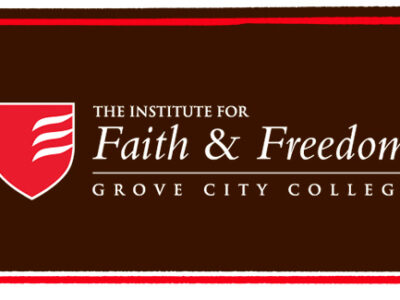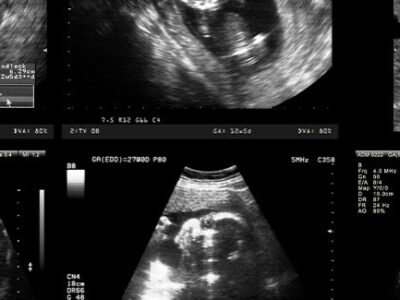
In our mainstream understanding of evolution, the denial of a personal God who designs and superintends every aspect of creation is all too typical. For the typical evolutionist, the thought of having God (or, for the Christian, Jesus Christ) in the role of creator (John 1, Colossians 1) is absolutely ludicrous. In fact, Darwin’s theory of evolution intentionally excluded design from the philosophical underpinnings of the theory. Newton would have been appalled by this, while at the same time sympathetic to natural explanations of the biological world.
It is no wonder that Christian instincts are opposed to the theory of evolution. Some Christians feel compelled to reject scientific claims of evolution because of the “guilt by association” with those theorists who have been openly hostile to Christian doctrines. However, many Christians, including some “young earth” creationists, argue that God uses evolution to accomplish certain creational ends.
The debate and discussion among Christians often centers on the extent to which evolution explains biology. The views range from seeing evolution as a rapid, but limited, post-Noahic flood process (articulated at the Creation Museum near Cincinnati, Ohio), to holders of a Darwinian theism who believe that most (if not all) biological diversity, including humans, can be explained by evolution. Consequently, it will undoubtedly be some time before Christians come to unanimity on how much God has used evolution to accomplish ordained ends. Christians, in my view, must affirm that the process is nonetheless God’s process, regardless of the extent to which evolution accurately explains biological phenomena. To assume otherwise, I believe, is to make the theological error that there are things created that God did not make.
Indeed, Christians would do well to remember that discoveries accurately made about the natural world reveal God’s work, even when those discoveries are made by those who do not recognize God. As Christians, we redeem those discoveries and bring them under Christ’s lordship for His glory and for the improvement of the human condition. We must humbly acknowledge that an unbelieving image-bearer of God can understand a lot about the natural world even though his theology is lacking.
Fitting these scientific discoveries into reality defined by God’s word is essential. There are certain things we learn from the Bible that we cannot find by studying nature. Genesis is clear on the relationships between God, humans, and the rest of creation. Scripture also informs us of our need for redemption, that Christ was born of a virgin and that He died and rose from the dead to defeat death on behalf of the repentant who have put their hope and trust in Him. These truths are not put forth as hypotheses to be tested, but as propositions to be believed. They are spiritually discerned. Scientific data weighs in on them repeatedly without confirming them.
Presently, a topic that is receiving a lot of attention among Christians in science is whether modern human genetics and paleo-anthropology allows for a historic Adam and Eve. When one considers the present extent of human diversity and known rates of mutations of genes, it can be scientifically hard to conceive of any time in human history when there was only one couple. Consequently, one may be led to believe that science tells us that there was no historic Adam and Eve and therefore no fall from sinless paradise, no virgin birth, no water to wine, no substitutionary atonement, no resurrection from the dead, and ultimately no hope beyond what humans can produce. However, because there is truth that does not need scientific confirmation, there is much hope. Hence, it is unnecessary and unwise on the basis of science to recast the nature of the conflict between good and evil, the doctrine of sin and the fall, and salvation through Jesus Christ in order to satisfy the tension created by modern science.
Tension will continue to exist between our understanding of the natural world and what we understand Scripture to be saying about it. Christian faith does not need to be misinformed, because it is theologically informed and not informed by the zeitgeist of the scientific community. After 150 years of criticism it seems likely that much of Darwin’s theory is here to stay. However, the Huxleyan, Dawkinesque, and Darwinian antitheistic take eventually will be tossed along with their cultural and societal failures. They are sure to err.
Science has contributed to helping us read Scripture. Evolution can be part of that. It is appropriate, for God’s truth, as discovered by the scientific process, to do this. For example, we no longer see the need for Joshua’s sun standing still to be a defense of geocentrism. However, the day we misuse science to tell us that a miracle never happened, or assume that Adam was not historic, is the day that we have taken a big step toward an unhealthy syncretism with naturalism.





Pingback: It is okay to use scientific evidence to support Christian beliefs | Darwin's Legacy